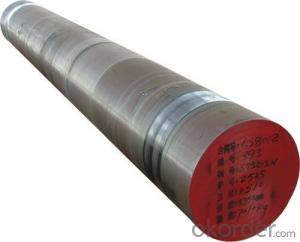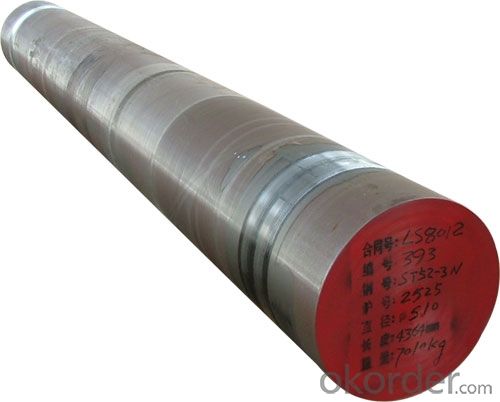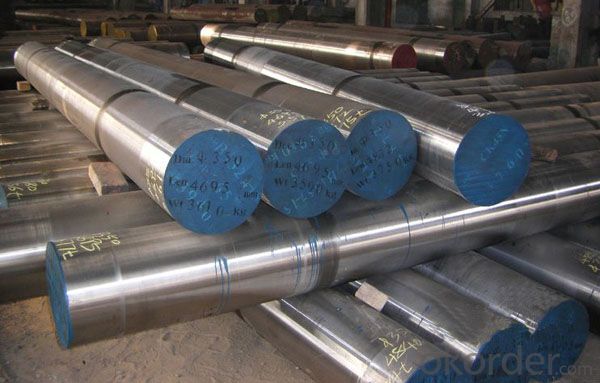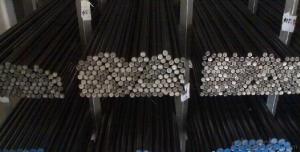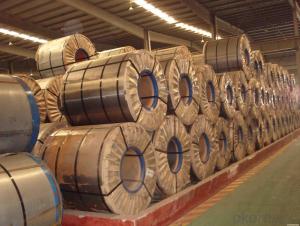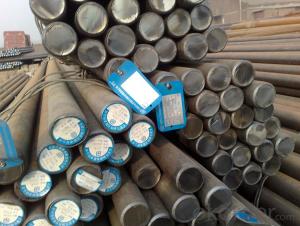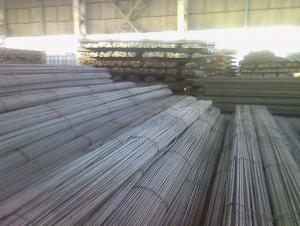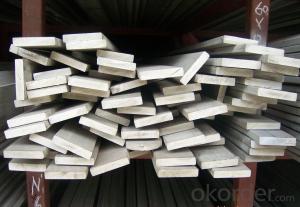Alloy Steel Spring Steel Round 65Mn Forged Steel
- Loading Port:
- China main port
- Payment Terms:
- TT OR LC
- Min Order Qty:
- 30 m.t.
- Supply Capability:
- 10000 m.t./month
OKorder Service Pledge
OKorder Financial Service
You Might Also Like
Specification
Product information:
Specification
| Product: | hot rolled spring steel coil strip 65mn, 1566 |
| Technique of production: | hot rolling , no annealing ,acid pickling |
| Productivity: | 300,000 Tons/year |
| Thickness: | 0.75-200mm |
| Width: | 914-2000mm |
| Coil Weight: | 3-10 Tons |
| Inside Diameter: | 508mm Or 610mm |
| Outside Diameter | 1000-1500mm |
| Standard: | ASTM A36, JISG3101, EN10025, ISO630, GB/T |
| Surface: | Light oil, without oil |
| Package: | Export standard package or as request |
| Application | Widely used in ships, automobiles, bridges, buildings, machinery, boilers, pressure vessels and other manufacturing industries |
Product Show:
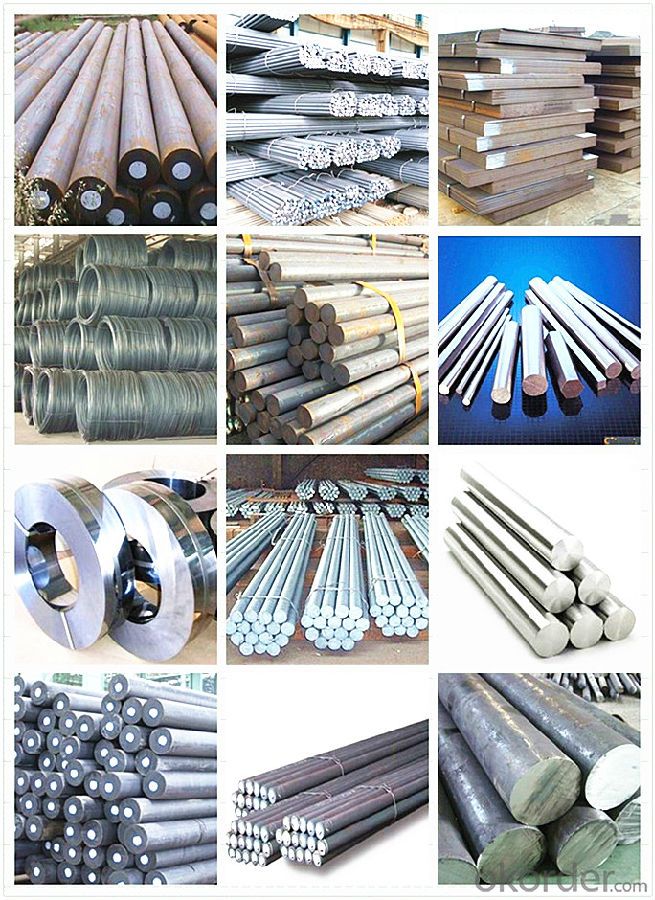
Workshop Show:
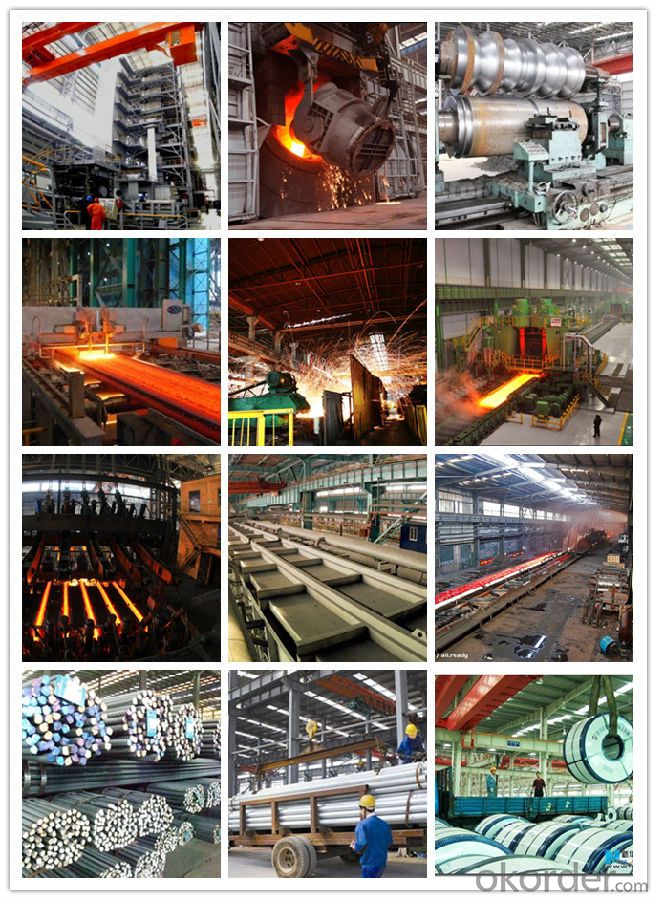
Shipping
1. FedEx/DHL/UPS/TNT for samples, Door-to-Door;
2. By Air or by Sea for batch goods, for FCL; Airport/ Port receiving;
3. Customers specifying freight forwarders or negotiable shipping methods!
Delivery Time: 3-7 days for samples; 5-25 days for batch goods.
Payment Terms
1.Payment: T/T, L/C, Western Union, MoneyGram,PayPal; 30% deposits; 70% balance before delivery.
2.MOQ: 1pcs
3.Warranty : 3 years
4.Package Informations: 1) EXPORT, In 20 feet (GW 25 ton) or 40 feet Container (GW 25 ton)
2)as customer's requirement
Why choose us?
(1) The leading exporter in China special steel industry.
(2) Large stocks for various sizes, fast delivery date.
(3) Good business relationship with China famous factories.
(4) More than 7 years steel exporting experience.
(5) Good after-sales service guarantee.
- Q: What are the common defects found in special steel production?
- Some common defects found in special steel production include: 1. Inclusions: These are impurities or foreign materials that are trapped within the steel during the manufacturing process. Inclusions can weaken the steel and reduce its overall quality and performance. 2. Segregation: Segregation refers to the uneven distribution of elements within the steel. This can occur when there are fluctuations in temperature or composition during the production process. Segregation can lead to inconsistencies in the steel's mechanical properties, making it less reliable. 3. Cracks: Cracks can occur in special steel production due to various reasons, such as improper cooling or excessive stress during the manufacturing process. Cracks can significantly weaken the steel, making it more prone to failure. 4. Decarburization: Decarburization is the loss of carbon from the surface of the steel, usually caused by exposure to high temperatures or oxidizing environments. This can reduce the steel's hardness and strength, compromising its performance. 5. Laminations: Laminations are layers or sheets that can form within the steel due to improper rolling or forging techniques. These layers can weaken the steel and potentially cause it to fail under stress. 6. Dimensional variations: Special steel production requires precise control of dimensions to meet specific requirements. However, dimensional variations can occur due to factors like inconsistent cooling or improper machining. These variations can affect the fit, function, and overall performance of the steel components. 7. Non-uniform microstructure: Inconsistent cooling rates or other processing factors can lead to a non-uniform microstructure in the steel. This can result in variations in hardness, strength, and other mechanical properties, affecting the overall quality of the steel. It is important for manufacturers to have stringent quality control measures in place to detect and minimize these defects during special steel production. Regular inspections, testing, and adherence to industry standards can help ensure that the final product meets the desired specifications and is free from common defects.
- Q: How does stainless steel contribute to the automotive industry?
- Stainless steel contributes to the automotive industry by providing superior strength, durability, and corrosion resistance. It is commonly used in the manufacturing of exhaust systems, body panels, and structural components, increasing the lifespan and safety of vehicles. Its high heat resistance also makes it ideal for engine parts, resulting in improved performance and efficiency.
- Q: What are the different methods of surface lapping for special steel?
- There are several methods of surface lapping for special steel, including abrasive lapping, diamond lapping, and chemical lapping. Abrasive lapping involves using an abrasive material, such as silicon carbide or aluminum oxide, to remove small amounts of material from the surface of the steel. Diamond lapping, on the other hand, utilizes diamond particles to achieve a high level of precision and smoothness. Chemical lapping involves using a chemical compound that reacts with the steel surface, selectively removing material to achieve the desired finish. Each method has its own advantages and is chosen based on the specific requirements of the steel and the desired outcome.
- Q: How does special steel contribute to the manufacturing of medical implants?
- Special steel plays a vital role in the manufacturing of medical implants by offering superior strength, corrosion resistance, and biocompatibility. These properties are crucial for ensuring the longevity and functionality of implants, allowing them to withstand the harsh conditions within the human body. Additionally, special steel can be shaped and machined into complex forms, enabling the production of intricate and customized implants to meet the specific needs of patients. Overall, special steel is essential for producing high-quality and reliable medical implants that enhance patient outcomes and improve their quality of life.
- Q: What are the main factors affecting the corrosion resistance of special steel?
- The corrosion resistance of special steel can be influenced by several key factors. To begin with, the composition of the steel is pivotal in determining its ability to resist corrosion. Special steels often contain alloying elements like chromium, nickel, and molybdenum, which create a protective oxide layer on the steel's surface. This layer acts as a barrier, preventing corrosive substances from reaching the steel and causing damage. The higher the percentage of these alloying elements, the stronger the corrosion resistance of the steel. Another significant factor is the presence of impurities or contaminants in the steel. Impurities like sulfur or phosphorous can compromise the protective oxide layer, making the steel more vulnerable to corrosion. Therefore, it is crucial to ensure the purity of the steel and implement appropriate manufacturing processes to maintain good corrosion resistance. The surface finish of the steel also plays a role in its corrosion resistance. A smooth and polished surface minimizes the areas where corrosive substances can gather and penetrate the steel, thereby reducing the chances of corrosion. Surface treatments like passivation or coating can further enhance the corrosion resistance of special steel. Moreover, the environment in which the steel is exposed is a critical factor. Different environments contain varying levels of corrosive substances such as moisture, acids, or salts, which can accelerate the corrosion process. Marine environments, for example, with their high salt content, are particularly corrosive and demand special steel grades with superior resistance to such conditions. Finally, the operating temperature of the steel can impact its corrosion resistance. Certain special steels, like stainless steel, exhibit excellent resistance to corrosion at elevated temperatures, making them suitable for high-temperature applications where other materials may corrode. To summarize, the corrosion resistance of special steel is influenced by factors such as composition, impurities, surface finish, environment, and operating temperature. By considering these factors and selecting the appropriate steel grade, one can ensure optimal corrosion resistance for specific applications.
- Q: What are the different nitriding techniques used for special steel?
- There are several nitriding techniques used for special steel, including gas nitriding, salt bath nitriding, plasma nitriding, and ion nitriding. Each technique involves introducing nitrogen into the surface of the steel to improve its hardness, wear resistance, and corrosion resistance. Gas nitriding involves exposing the steel to ammonia gas at high temperatures, while salt bath nitriding immerses the steel in a bath of molten salts containing nitrogen. Plasma nitriding and ion nitriding both use electrical discharges to ionize nitrogen gas and accelerate it towards the steel surface. These techniques offer different levels of control over the nitriding process and can be tailored to meet specific requirements for different types of special steel applications.
- Q: What are the different shot blasting techniques used for special steel?
- Some of the different shot blasting techniques used for special steel include wheel blasting, air blasting, and wet blasting. Wheel blasting involves using a high-speed rotating wheel to propel steel shot at the surface of the steel, removing any contaminants or rust. Air blasting uses compressed air to propel abrasive particles at high speed onto the surface of the steel, achieving a similar result. Wet blasting combines water with the abrasive particles to create a slurry, which is then sprayed onto the steel surface to remove any impurities effectively. These techniques are commonly employed to prepare special steel for further processing or to enhance its surface finish.
- Q: How is magnetic alloy steel used in the production of magnetic components?
- Magnetic alloy steel is used in the production of magnetic components due to its high magnetic permeability and excellent magnetic properties. It is commonly utilized in manufacturing various magnetic components such as cores, stators, rotors, and transformers. The alloy's magnetic properties allow for efficient magnetization and demagnetization, making it suitable for applications where strong magnetic fields are required. Additionally, magnetic alloy steel is often used in electrical motors, generators, and magnetic sensors, contributing to their overall performance and reliability.
- Q: How does special steel contribute to improved product aesthetics?
- Special steel contributes to improved product aesthetics in several ways. Firstly, special steel can be manufactured with a higher level of precision and consistency compared to regular steel. This allows for the creation of products with smoother surfaces, sharper edges, and more intricate designs. As a result, products made from special steel often have a more visually appealing appearance. Additionally, special steel can be treated or coated to enhance its visual appeal. For example, it can be polished to create a reflective surface, giving the product a high-end and luxurious look. Special steel can also be coated with different colors or finishes, such as chrome or black oxide, to match specific design preferences and create a more visually striking appearance. Furthermore, special steel can be shaped and formed in unique ways due to its superior strength and flexibility. This allows designers to create products with more complex and innovative shapes, resulting in a distinct and eye-catching aesthetic. The ability to mold special steel into various forms also opens up possibilities for creating intricate patterns, textures, and embossed designs on the product's surface. Lastly, special steel offers excellent corrosion resistance and durability, which helps maintain the product's appearance over time. It prevents rust, staining, and other forms of deterioration that can negatively impact the visual appeal of a product. This long-lasting aesthetic quality is especially important for products that are regularly exposed to harsh environments or require frequent handling. In summary, special steel contributes to improved product aesthetics through its precision manufacturing, customizable surface treatments, unique shaping capabilities, and long-lasting visual appeal. These qualities allow for the creation of visually appealing products that stand out in terms of design, finish, and overall appeal.
- Q: What are the requirements for special steel used in defense equipment manufacturing?
- The requirements for special steel used in defense equipment manufacturing typically include high strength and durability, resistance to corrosion and wear, good toughness and impact resistance, as well as the ability to withstand extreme temperatures and harsh environments. Additionally, the steel must meet stringent quality control standards and industry specifications to ensure its reliability and performance in critical defense applications.
Send your message to us
Alloy Steel Spring Steel Round 65Mn Forged Steel
- Loading Port:
- China main port
- Payment Terms:
- TT OR LC
- Min Order Qty:
- 30 m.t.
- Supply Capability:
- 10000 m.t./month
OKorder Service Pledge
OKorder Financial Service
Similar products
Hot products
Hot Searches
Related keywords
